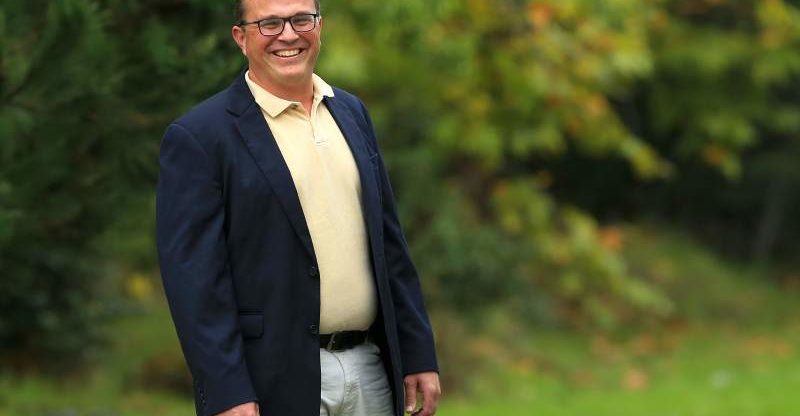Two decades ago, Californians voted to become the first state in the nation to allow use of medical marijuana.
A cannabis trade now worth billions of dollars sprouted, linking growers in the famed Emerald Triangle and those closer to home on the North Coast with dispensaries and consumers buying an ever wider array of pot products.
Still, the drug remains illegal for recreational use, a prohibition that will end if voters pass Proposition 64 on Nov. 8. While the measure leads in the polls, with up to 60 percent of likely voters favoring approval, the pot industry is deeply split, eyeing Colorado’s experience and those of three other West Coast states — Oregon, Washington and Alaska — where pot is legal.
Here, meet some of the people shaping the future of the marijuana industry on the North Coast:
Craig Litwin’s campaign to end marijuana prohibition began 22 years ago, when at the age of 18 he collected signatures in Sonoma County to get Proposition 215 on the ballot.
That effort culminated with California voters approving in 1996 the first law legalizing medical marijuana in the United States.
In 2012, he ran cannabis dispensary operator Robert Jacob’s successful campaign for Sebastopol City Council, followed a year later by Jacob’s recognition by the New York Times as the nation’s first mayor from the medical marijuana industry.
Litwin is a former two-term Sebastopol councilman and principal in the 421 Group, a Sebastopol-based consultancy for cannabis organizations. He is now running again for the Sebastopol council as Jacob steps off it, and looking forward to approval of Proposition 64 on Nov. 8.
“We have to stop treating cannabis as a criminal issue. It’s a plant that folks should have a right to access,” said Litwin, who has spent his entire adult life working to break down prohibition.
The proposed law in front of voters, backed by Lt. Gov. Gavin Newsom and bankrolled by tech entrepreneur Sean Parker, offers only a partial victory, he said. The measure guarantees people 21 and over the right to possess up to an ounce of marijuana and the right to grow six plants.
In giving cities and counties the right to ban commercial cultivation, dispensaries and any other cannabis business, Proposition 64 does not completely afford access to the psychoactive plant that many people use as medicine, Litwin said.
In Sonoma County, dispensaries are permitted only in Santa Rosa, Sebastopol, Cotati and the unincorporated area, while the six other cities prohibit commercial cultivation and sales.
No law should require cities and counties to allow marijuana businesses, but in banning the industry they miss out on tax revenue and the prospect of curbing black market sales and illicit cultivation, Litwin said.
Litwin said he will continue lobbying local governments to regulate the multi-billion-dollar industry in Sonoma County and statewide.
“We still have a lot more work to do,” he said. “I am confident that one by one jurisdictions will end the war on cannabis.”
Approving Proposition 64 will make a difference, Litwin said, by sanctioning in the nation’s most populous state a drug the federal government ranks as dangerous as heroin, LSD and Ecstasy. That step could prompt the government to lift the ban on interstate shipment of California cannabis and provide a huge boost to the North Coast economy. But Litwin also sees easing prohibition as a social justice issue, noting that disproportionate numbers of racial minorities are incarcerated for marijuana offenses in California “for no good reason at all.”
Proposition 64 allows people incarcerated for a crime that would have been a lesser offense, or no offense had the proposed law been in effect at the time of their crime, to seek resentencing or dismissal of the case.
“Now is the time,” Litwin said.








